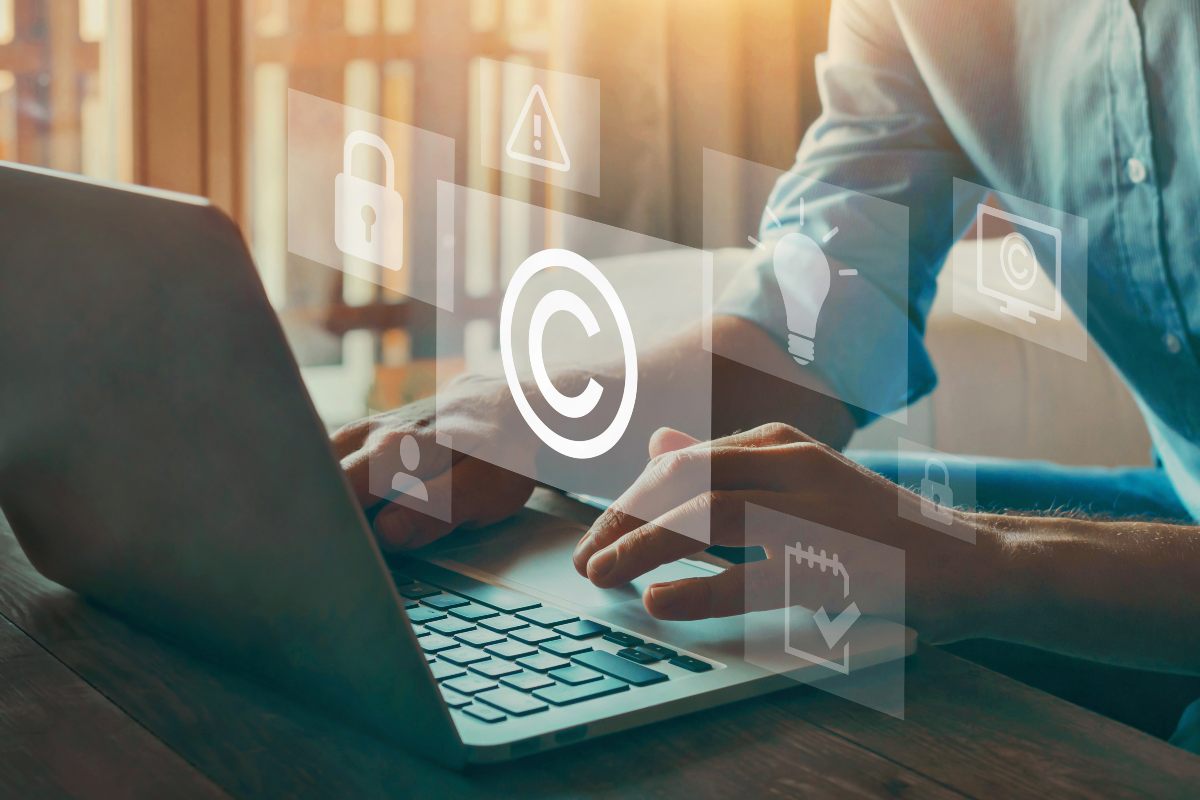Does your business own any intellectual property (IP) assets? If so, how much is that IP worth? Will you be selling IP assets with the sale of your business? While we’re on the topic, what’s considered “intellectual property” in a business anyway?
If you’re not sure about the answers to any of these questions, you’re not alone.
We always ask business owners about the IP assets in their business when we start the conversation about selling. The answer we get most often is, “we don’t have any IP.” But few businesses have no intellectual property whatsoever.
If your business has a name, logo, domain name, and website, then selling IP assets will indeed be part of the sale of your business.
While intellectual property always plays a role in selling a business, the question is how big, and how will it be treated? In this article, we’ll discuss the types of IP assets associated with your business, how they contribute to value, and how buyers view IP in a business sale.
There’s More to Selling IP Than Patents
It’s easy to think of IP as synonymous with patents, or other forms of intellectual property filed with the United States Patent and Trademark Office (USPTO). But IP assets aren’t limited to the type of intellectual property that has gone through a rigorous, formal submission process with a state or federal regulatory body.
“Not every business will have patented or patentable innovations,” explains Angela Grayson, IP attorney and founder of Precipice IP — a strategic IP consulting and law firm in Bentonville, Arkansas. “But nearly every business will have trade secrets, trademarks, and copyrights.”
Let’s take a quick look at the four main types of intellectual property:
- Trademarks: Words, phrases, symbols, sounds, smells, and color schemes
- Copyrights: Works of authorship
- Trade Secrets: Proprietary procedures, systems, devices, formulas, strategies or other information that is confidential and exclusive to the company using them
- Patents: New, inventive ideas or processes
If you’ve built a successful business with transferable value, it will have some basic intellectual property in the form of trademarks and copyrights (registered or not).
Trademarks
“Examples of trademarks include the brands companies use to identify and distinguish their products or services in the marketplace,” says Ms. Grayson. “Think of the golden arches for McDonald’s or the yellow burst for Walmart. Trademarks can exist as registered (with state or federal governments) or unregistered common law rights (through use).”
Copyrights
Copyrights can encompass virtually any original creative material associated with your business. According to Ms. Grayson, copyrights protect original works of authorship when set in a tangible form. These can include videos, brochures, logos, artwork, and digital content like websites and blog articles.
Trade Secrets
Ms. Grayson describes the term “trade secret” as little more than a glorified word for information that provides an economic benefit to a business where reasonable steps have been taken to keep the secret. “This information can be in the form of a recipe, customer list, marketing plan, know-how, or a wide variety of technical and non-technical content,” she adds.
Patents
If your company owns a patent or portfolio of patents, a buyer will spend quite a bit of time doing patent due diligence. The process typically starts with determining whether all patents and applications are properly assigned and recorded. The buyer’s IP due diligence checklist will also ask for all relevant agreements involving the patents including current licenses, offers to license, and OEM arrangements.
“Patents can be used to protect not only original designs and products, but also business methods, processes and systems,” says Ms. Grayson. Whatever types of patents are associated with your business, consider having an IP law firm perform an audit before going to market.
Understand the Value of Intellectual Property
Most business sale transactions in the lower middle market (i.e., privately-held businesses that sell for less than $25M) don’t attribute a separate value to IP assets. Any intellectual property associated with the business is typically considered part of intangible assets, and as such is reflected in the value of Goodwill.
Just because IP assets don’t have a separate dollar amount attached to them doesn’t mean they won’t impact the sale price of your business. Many small businesses show robust cash flow from operations on the P&L, but little in the way of fixed assets on the balance sheet. In other words, they are “asset light.” This means the bulk of the business value will come from its Goodwill.
If desirable IP assets increase business value through Goodwill, then they most certainly have value. An example of selling IP that has real yet intangible value can be seen in the brand of a business.
We all know what a business with a stellar brand looks like. The colors, marks, and messaging (i.e., trademarks and copyrights) are highly recognizable and consistent in the marketplace. A great brand attracts customers, retains employees, and gives a business an edge over competitors — an edge that should be evident in sales and profitability.
Likewise, we’ve all run across businesses whose brand looks tired, out of date, and neglected. Not surprisingly, these businesses often show stagnant or declining financial performance.
All things being equal, it’s not hard to guess which business will be more sellable, have more value, and generate more interest and stronger offers from high-quality buyers.
There are certainly instances, as in the case of patents and licensing agreements, where a separate IP valuation may be in order. If that’s the case, hire a law firm and/or valuation expert that specializes in IP valuation.
Regardless, the first step in the selling process is to get a business valuation (we recommend 6-24 months prior).
How Buyers View IP Assets in a Business Sale

Buyers tend to view any business asset in one of two ways: Whether it adds to or subtracts from the value of the business, and whether it comes with risk. Intellectual property is no different.
Does It Add Value?
In the branding example above, even unregistered trademarks and copyrights — all of which will transfer to a new owner — can contribute to value, or detract from it. If your business has IP assets that are correctly registered at the state and/or federal level, those can be an enormous value-add. Likewise, flaws in critical IP registrations can decrease value and make the business difficult to sell.
What Are the Risks?
Buyers will also try to ascertain if there are any risks associated with the IP assets of your business. Do you own the IP rights? Have you taken proper steps, both internally and externally, to protect your IP? Buyers will want assurances to this effect from you, and will include them in the Definitive Agreement.
Every transaction includes a small business due diligence list from the buyer. Expect to see intellectual property requests on the list. Depending on your situation, these requests could range from a few questions to exhaustive requests dedicated solely to IP due diligence.
Again, consider getting legal advice from an IP law firm. Also, work with an M&A advisor or business broker to make sure your IP ducks are in a row as part of your pre-sale planning process.
Don’t Let IP “Surprises” Threaten a Business Sale
The last thing you want in any transaction is to uncover problems during due diligence. Any seasoned business broker will tell you that surprises kill deals.
When it comes to selling IP assets, mistakes tend to fall into two categories: Ownership and control.
We once worked with a company that sold its product all over the world. It wasn’t until due diligence that the buyer’s legal counsel discovered that an international trademark had been filed incorrectly. While the mistake didn’t pose a significant threat to closing the deal, it ended up causing an unwelcome delay and administrative hairball.
In another instance, we worked with a seller who allowed a fellow entrepreneur with a complementary local business to copy his logo. The rationale was that the shared logo design would make both businesses “look bigger.” The result was similar in that it made buyers pause, and added complexity to the transaction.
At the end of the day, the onus is on you, the business owner, to safeguard the IP rights that give your small business a competitive advantage.
“Get it right from the start,” advises Ms. Grayson. “If not, then fix it before you need to. Openly repairing intellectual property issues (if one can) after a deal is on the table can end up devaluing the property.”
Ready to start the conversation about selling your business? Reach out to the advisors at Allan Taylor & Co. today.
Barbara Taylor is the co-founder of Allan Taylor & Co. You can connect with her on Twitter @ballantaylor or LinkedIn.



